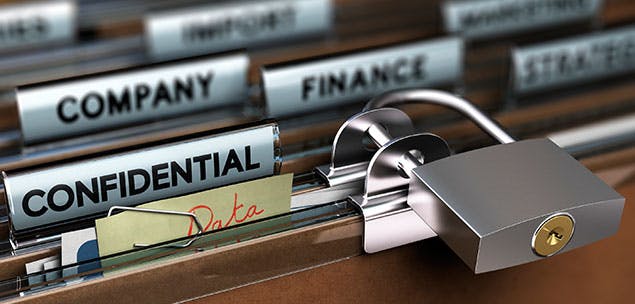Document security is vital for any business. Errors in this area can lead to consequences like client confidentiality being broken or even identity theft. You might understand the importance of document security measures, but are your employees taking the same precautions? Below are some basic document security mistakes that even the most loyal employees make.
DIY Shredding
Although it might sound convenient, there are actually a few problems with having your staff take on the task of shredding. First, your business shredder may be a basic model that doesn’t offer additional features such as pierce and tear capabilities, so although it’s a nice gesture, these important documents you are handing over may not be destroyed properly. Second, staff have to dedicate valuable work time to this task, and they may not be the right person to be seeing such sensitive documents in the first place. Hiring professionals such as Shred-X is your best option to avoid these issues, as their equipment is designed to handle the work and the company adheres to the Privacy Act 1988.
Bad Timing
Did you know there are rules around when you can destroy documents? This is something your employees may not know either, so they might be destroying information too early, or are holding on to documents they should have destroyed ages ago. Depending on the industry you work in, there are legislative requirements around how long your company needs to hold onto information for before destroying it. It could be two or three years, or more! All your employees should be made aware of this.
Spreading the Word
Do you make it clear on business documents or information that it shouldn’t be distributed elsewhere, or even discussed with other employees? If you don’t make this clear to your staff, how are they supposed to know? For example, an employee forwarding an email with a client’s signature line still on it could spell disaster—it could expose vital corporate relationship information to outside sources. The same goes for internal communication and information distribution; have a procedure in place for sharing internal email correspondence or even suggest a specific printer to use for printing certain information.
A Casual Attitude
A casual attitude at work is great to a certain extent, as it means these employees are easily approachable. However, ‘casual’ shouldn’t cross over into the handling of important information. Tablets, phones, laptops and computers rule the workplace, and if left unattended they can become portals to your entire business. Employees must understand that all devices need to be locked when they are not actively using them, including the computer at their desk—this is especially important if you have a lot of external traffic coming through your business.
The best way to avoid any future risks to document security—and keep your business’s reputation—is to have a procedure in place. Make sure all your employees are aware of what documents need to be kept where, what information needs to be destroyed by professionals, and who to go to for assistance when they’re unsure. Do this and you will take a huge step towards avoiding any embarrassing bungles!

